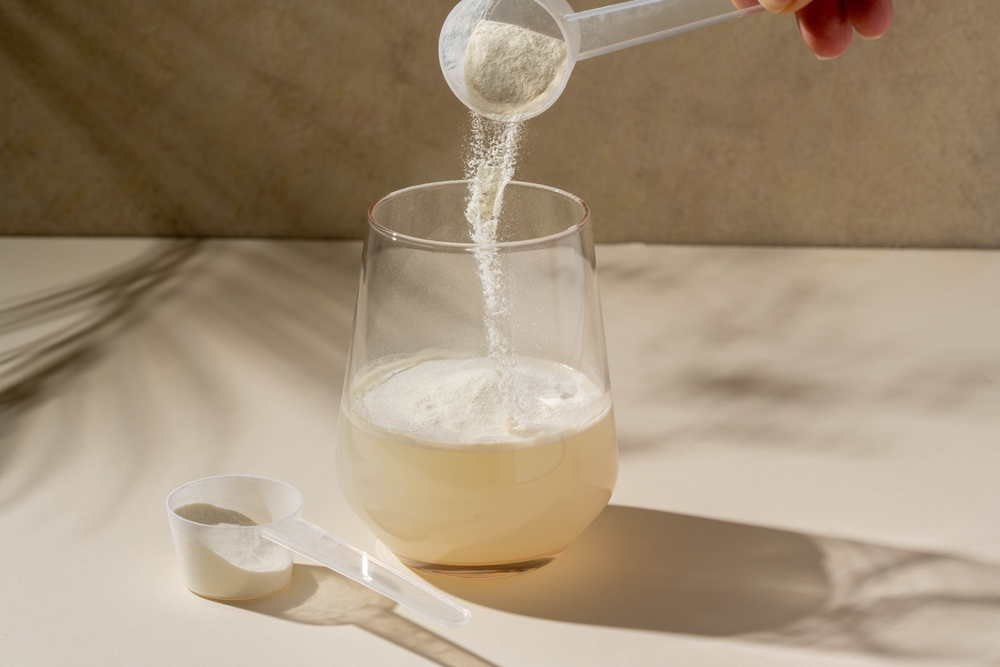Inositol has garnered considerable attention for its purported ability to regulate menstrual cycles, particularly among women grappling with Polycystic Ovary Syndrome (PCOS). Widely hailed as a “miracle pill” by those navigating the challenges of PCOS, its popularity has skyrocketed as women share anecdotes of its transformative effects on hormonal balance.
We delve beyond the enthusiastic testimonials to scrutinise the scientific underpinnings of it’s acclaimed benefits. We spoke to Leila Martyn, founder of MyOva, Jodie Relf, PCOS Dietician and spokesperson for MyOva and Alex Okell, Nutritionist & Founder of The PCOS Collective, all specialists in this field, to unravel the intricacies of how this supplement operates within the body, seeking to discover whether its reputation aligns with the evidence.
What is Inositol?
Leila: Inositol, once thought to be a B vitamin, is a simple sugar-like substance that the body can make in small amounts on its own. There are nine different types, naturally found in foods like fruits and beans, but the most common forms, often seen in supplements, are Myo-inositol and d-chiro-inositol.
Who is it for?
Alex: The research suggests that inositol is beneficial for individuals with PCOS (Polycystic Ovary Syndrome) because of its impact on insulin resistance, androgen levels, reduced metabolic disorder risk and ovulation and fertility outcomes. Although it is primarily researched for PCOS it may also aid those with irregular menstrual cycles because of its links with ovulation and menstrual cycle regularity.
Internally, how does it affect women’s health?
Alex: Myo-inositol, acting as a secondary messenger for follicle-stimulating hormone (FSH), is beneficial in balancing the FSH/LH ratio and therefore regulating menstrual cycles. It may also enhance the maturation of ovarian follicles and improve the quality of egg cells, potentially boosting reproductive chances. D-chiro inositol, linked to androgen synthesis and insulin, aids in glucose storage by acting as an insulin sensitiser.
What are the main benefits and how is it helping women?
Leila: When it comes to PCOS, Myo-inositol plays a crucial role in restoring balance within the body. Numerous studies have shown that it can effectively reduce insulin levels, leading to restored ovulation, improved egg quality, reduced hyperandrogenism (elevated testosterone levels), prevention of gestational diabetes in pregnant women, and can contribute to regulating the menstrual cycle. It produces these impressive results by acting as an insulin sensitiser, enhancing the body’s response to insulin by improving the metabolic pathways involved in carbohydrate metabolism.
Many people with PCOS are often prescribed metformin, a medication that helps the body use insulin more effectively to assist in weight loss, restore ovulation, and enhance fertility. However, metformin can sometimes lead to uncomfortable side effects. Studies indicate that Myo-inositol can be just as effective as metformin in managing PCOS, but without the side effects, making it a great natural alternative, with the added benefit that Myo-inositol can be easily purchased over the counter or online.
Can inositol help with fertility?
Alex: Yes, studies have found that taking myo-inositol, alone or in combination with D-chiro-inositol, is capable of restoring spontaneous ovulation and improving fertility in people with PCOS.
What type of inositol should I take?
Jodie: Clinical studies have demonstrated favourable outcomes with the use of both myo-inositol in isolation and a combination of myo-inositol and D-chiro inositol (in a 40:1 ratio). The evidence supporting the effectiveness of each of these formulations is equally robust, signifying that opting for either form can yield positive impacts on managing PCOS.
Myo-inositol in isolation is more readily available and usually more affordable than the combination which makes it the most popular choice. MyOva’s best-selling Myoplus is a highly regarded formula that you can trust.
How and when should you take it?
Alex: Inositol supplementation as a treatment for PCOS is still experimental, which means more research is needed to conclusively recommend it for PCOS. If you do choose to take it, consult with your healthcare provider or nutrition professional. Always follow the instructions on the label to prevent taking too much (overuse of inositol may lead to hypoglycemia (low blood sugar), although this is considered rare). It is advised to split your supplementation across the day, half in the morning and half in the evening. Dosage is brand dependent but it is usually between 2000 and 4000 mg. If you decide to supplement with inositol, ensure you are taking it for at least 3-6 months to be able to see if it affects your PCOS symptoms (unless told otherwise by your healthcare team). Inositol can be taken during pregnancy, and it may offer benefits such as reducing the risk of gestational diabetes, especially in people with PCOS.
Are there any side effects associated with Myo-inositol?
Jodie: Most individuals experience no side effects and no studies have reported any severe side effects. It’s important to note that everyone reacts differently to all supplements and medications, if you do experience any side effects you should contact your GP and discuss either stopping the supplement or lowering your dose.
Can you take Inositol alongside contraception, fertility treatment and other forms of medication?
Alex: Yes, it can be taken in combination with other medications as it has few interactions with other medications. As always, speak with your doctor to make sure supplementing is safe for you.
Why has it become more talked about in recent years?
Leila: I believe the growing interest is due to several factors. First, there’s an increasing awareness and conversation about women’s hormonal health, including conditions like PCOS. Everyone from social media influencers to mainstream media outlets is driving this dialogue. This openness has led to more women sharing their experiences and solutions that have worked for them.
I also believe that there is a general preference among many women to avoid pharmaceutical drugs unless absolutely necessary, favouring natural alternatives when they’re effective. Additionally, I truly think COVID played a huge role. With doctor’s appointments becoming harder to schedule, many women turned to online resources to find natural solutions for their health issues, leading to a greater interest in alternative options.
If Inositol doesn’t have the desired outcome for a woman who has been diagnosed with PCOS, what does this suggest?
Jodie: You may need to consider the dose you are taking. While research highlights the potential benefits, definitive guidelines on the correct dose are still evolving, necessitating further study. Many clinical trials use a dosage of 4000mg of myo-inositol, divided into two daily doses (2000mg in the morning and the same in the evening). If you’ve been taking a lower dose, increasing it could be worth exploring to gauge the desired effects.
Additionally, patience is key. While noticeable improvements often manifest within three months, some individuals might experience changes over a more extended period, ranging from 6 to 12 months. It’s crucial to recognize that it isn’t a miraculous solution. Optimal results hinge on adopting broader lifestyle changes to effectively manage PCOS. If the desired outcomes aren’t realised with inositol alone, considering complementary lifestyle changes alongside supplementation is advisable.
READ MORE: 10 Ways You Can Kick PCOS














